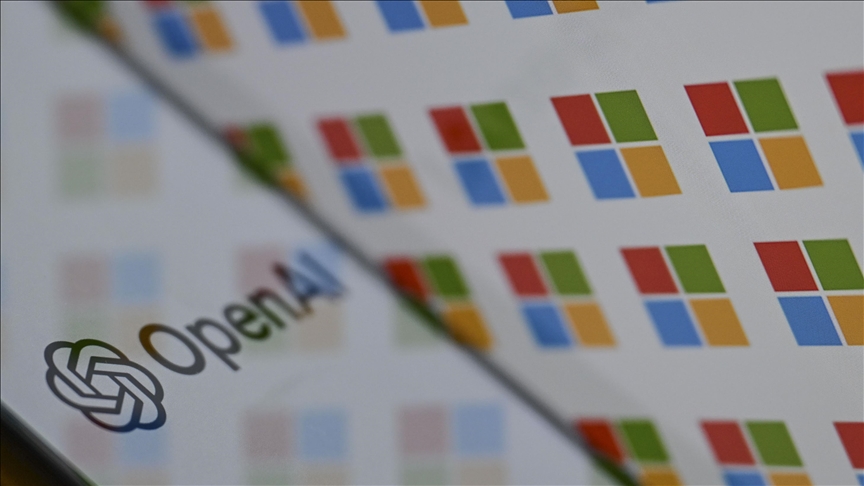US tech firms’ AI services bolster Israeli military, sparking civilian casualty concerns
Investigation by Associated Press found companies like Microsoft quietly boosted Israel’s military operations in Gaza, Lebanon using advanced AI, computing services

ISTANBUL
US technology companies have quietly ramped up support for Israel’s military operations by providing advanced artificial intelligence and computing services, an investigation by The Associated Press (AP) has found.
The tech aid has accelerated the identification and targeting of “alleged militants” in the Gaza Strip and Lebanon -- but it has come amid a disturbing surge in civilian deaths, raising serious ethical and operational concerns.
The Israeli military employs AI to analyze intelligence, intercept communications and surveillance data for signs of suspicious behavior and track enemy movements.
After the Oct. 7, 2023, attacks, the army’s use of Microsoft and OpenAI technology surged, according to the AP’s investigation based on internal documents, exclusive interviews with current and former Israeli officials and testimonies from tech employees, who mostly spoke on condition of anonymity.
The AI tools make the intelligence process more accurate and more effective, and in the current war against the Palestinians they have been able to minimize civilian casualties, the Israeli army told the AP.
The military insists that targets identified with the help of AI-enabled systems are also reviewed by human analysts to comply with international law.
The investigation also uncovered fresh insights into how AI systems choose targets and the potential errors they might encounter, such as issues with faulty data or flawed algorithms.
According to internal company data reviewed by the AP, the army’s use of Microsoft and OpenAI artificial intelligence technology surged in March 2024 to almost 200 times higher than before the week leading up to the Oct. 7 attack.
Deepening ties between Israeli military, tech giants
The investigation also uncovered details of longstanding and deepening ties between the Israeli military and US tech companies.
Microsoft, for example, has maintained a decades-long relationship with Israel’s army. A document reviewed by the AP disclosed a $133 million three-year contract signed in 2021 between Microsoft and Israel’s Ministry of Defense.
The military is listed as an “S500” client in Microsoft -- a designation reserved for the company’s highest-priority customers -- with at least 635 individual subscriptions identified by code names such as “Mamram” and “8200,” the latter being an elite intelligence unit known for its technological prowess.
Records show Microsoft’s global Azure support team handled about 130 direct requests from the army during the first 10 months of the Gaza war.
An Israeli intelligence officer said the military relies on Azure to compile and analyze vast amounts of data collected through mass surveillance -- including phone calls, texts and audio messages.
Microsoft data reviewed by the AP showed that since the Oct. 7 attack, the Israeli military has increasingly turned to transcription and translation tools and OpenAI models.
OpenAI has acknowledged that its Whisper translation model, which supports multiple languages including Arabic, can sometimes generate text that was never spoken, even adding racial or violent commentary.
The Israeli military stated that any phone call translated from Arabic -- or intelligence used to identify a target -- must be reviewed by an officer who speaks Arabic.
Other tech companies are also entangled in the web of military support. Google and Amazon, under Project Nimbus -- a $1.2 billion contract signed in 2021 -- provide cloud computing and AI services to the army.
The military uses Cisco and Dell server farms or data centers, while IBM’s Red Hat supplies cloud services to the Israeli military. Meanwhile, Palantir Technologies -- a Microsoft partner in US defense contracts -- provides AI to support Israel’s operations.
Google insists on responsible AI development that safeguards people, boosts growth and underpins national security. Dell affirmed its commitment to high global standards, including in Israel. Red Hat expressed pride in its global customers for adhering to the company’s terms and applicable laws.
Palantir, Cisco and Oracle did not respond to requests for comments, and Amazon declined to comment.
Yet internal dissent and employee protests reveal deep ethical divisions.
In recent months, some tech workers at Microsoft and Google have been dismissed after organizing protests against their companies’ military contracts, reflecting a growing unease over the role of commercial technology in modern warfare.
Gaza remains in a precarious ceasefire. Meanwhile, the Israeli government recently announced plans to broaden its artificial intelligence initiatives across all military branches.








